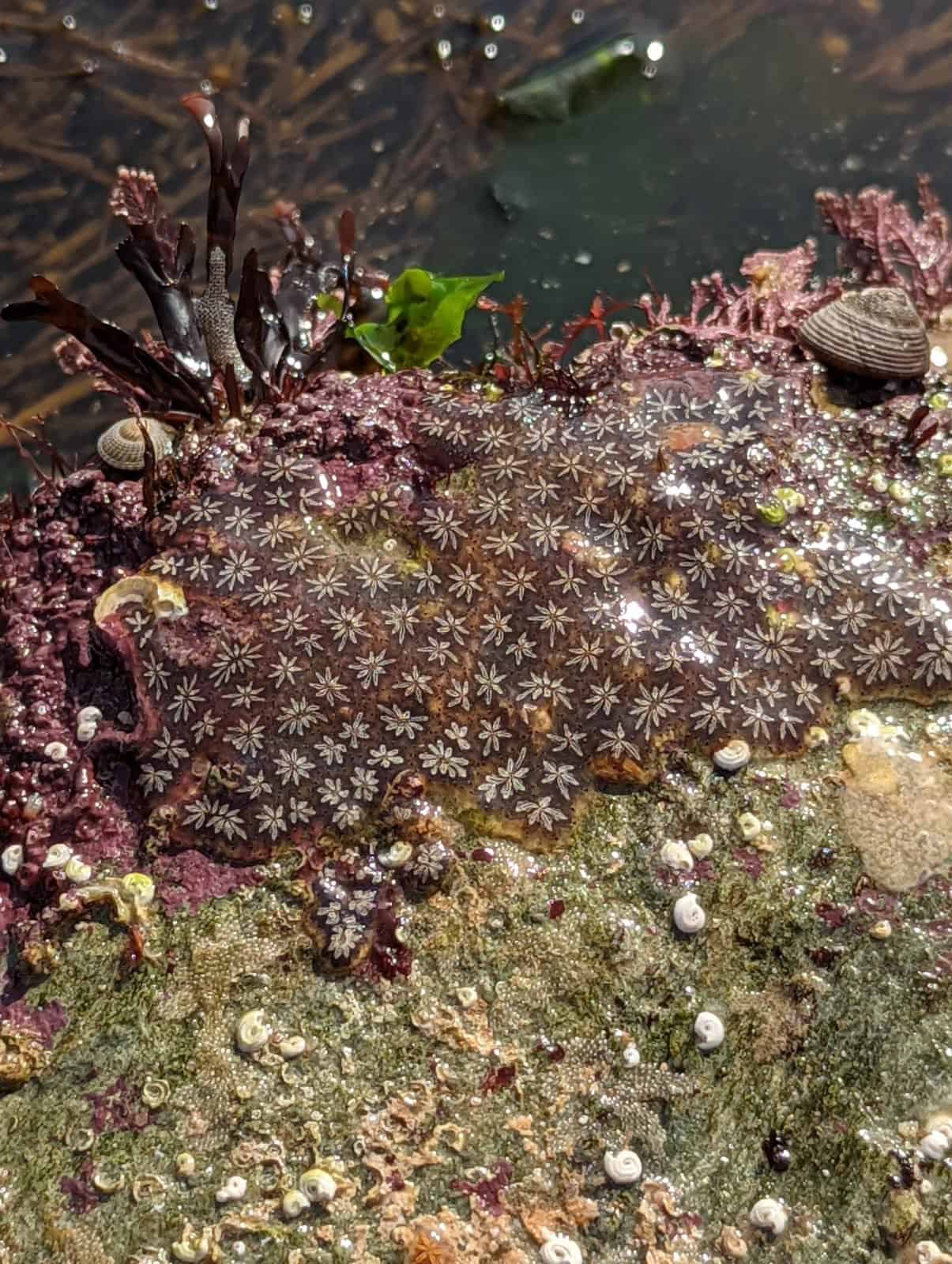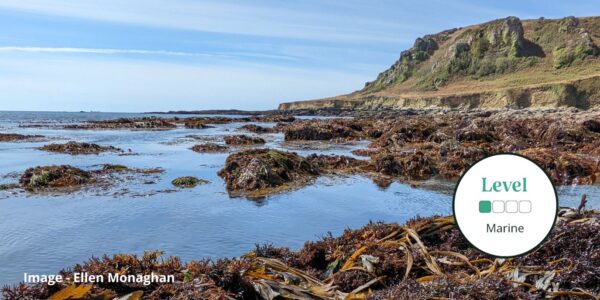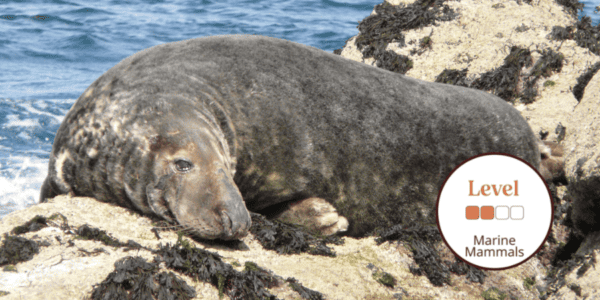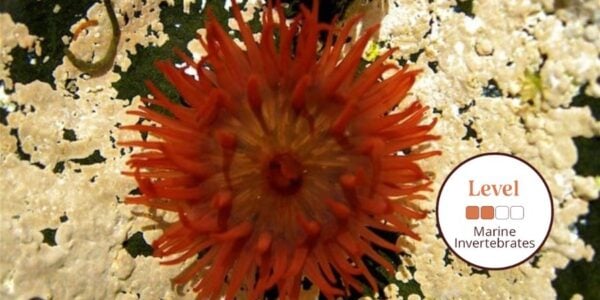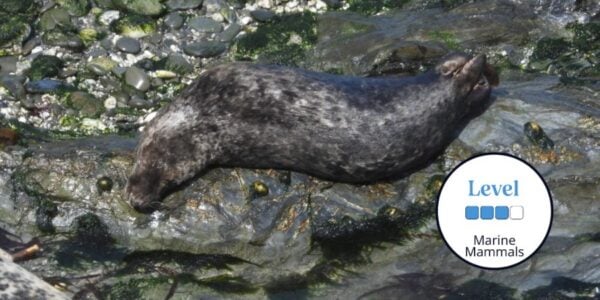Rocky shorelines are home to a remarkable diversity of organisms. This immersive beginner course will be a chance for you to explore life on the rocks and in the pools, encountering many of the species that are characteristic of the UK coastline.
This course will be almost entirely based outside, meaning you’ll have plenty of time to explore and put your newfound knowledge into practice!
This course will include:
- An introduction to rocky shore ecology including identification of major animal groups of the shore.
- An introduction to using identification guides and keys to identify rocky shore organisms.
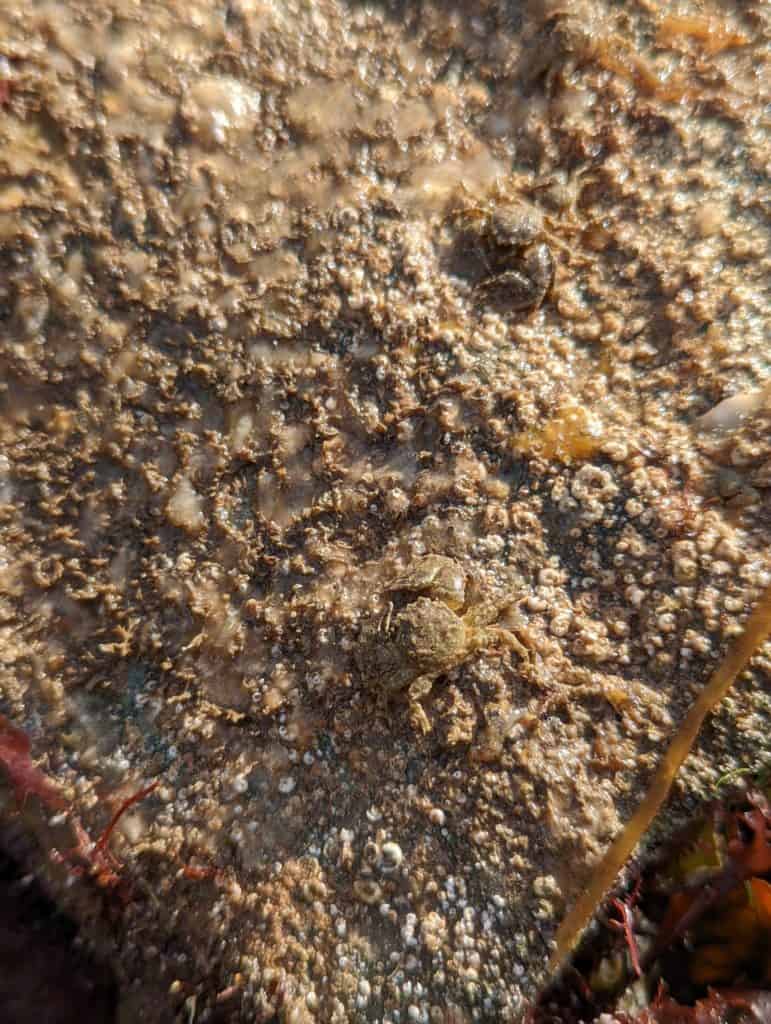
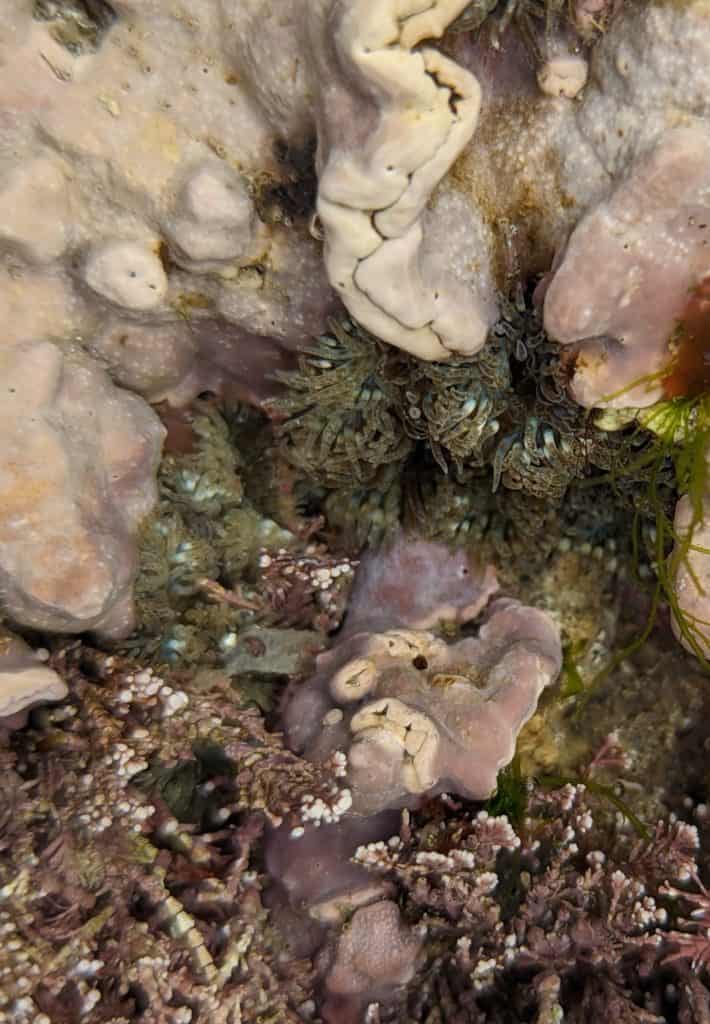
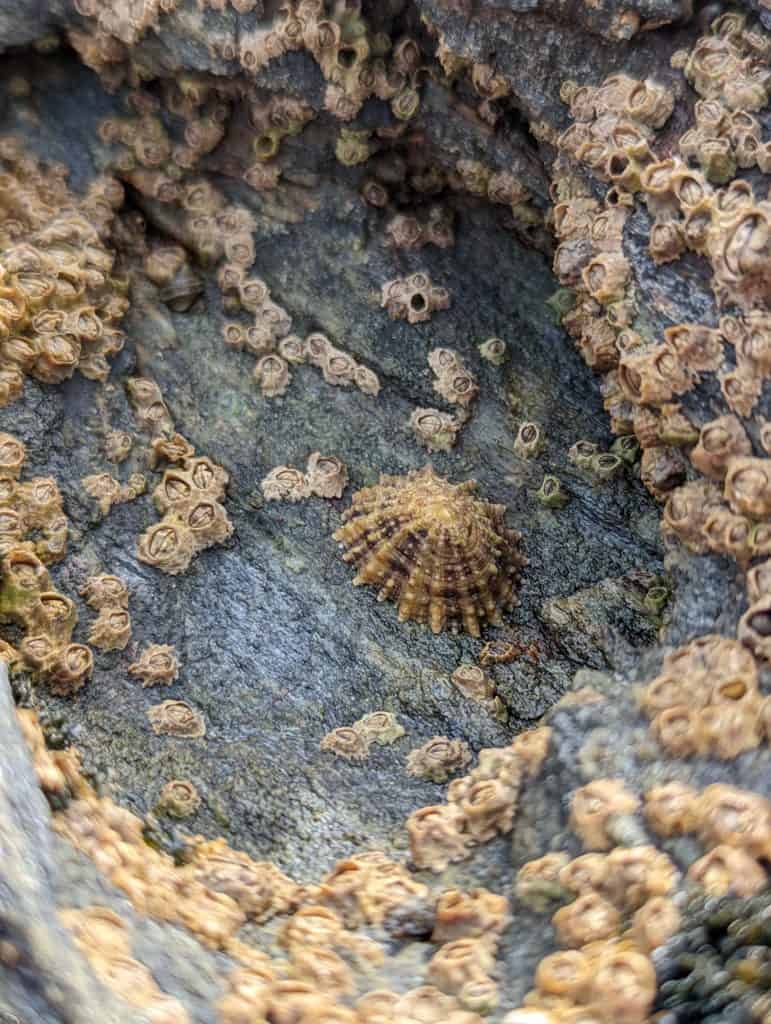
Images by Ellen Monaghan
Read More
Learning to name the species you find is an important step in understanding the environment around you. In this beginner level course you will immerse yourself in the rocky shoreline, looking at the ecology of this diverse ecosystem. You will learn how to identify the organisms that live there and understand their distribution on the shore. You will learn how to use identification keys and gain practice in using them.
By the end of the course, you will be able to:
- Describe key species of seaweeds and animals and their distribution on the shore.
- Understand how distributions reflect the impact of both abiotic and biotic interactions.
- Explain the differences seen in the seaweed and animal communities of sheltered and exposed shores.
- Use key terms required for use of guides and keys, becoming familiar with species descriptions.
- Understand the principles of a dichotomous key and how they work.
- Correctly identify a brown seaweed to species-level using a Field Studies Council key.
- Correctly identify a gastropod mollusc to species-level using appropriate key.
Who Should Attend? – Anyone interested in the marine environment, nature enthusiasts, students, rangers, early career consultants and ecologists.
Knowledge Level – Beginner. Level descriptors can be found on the following web-page: Framework and Course Level Descriptors
Prior Knowledge – A basic understanding of marine environments and terminology would be beneficial for this course, though no specific experience is needed, just a willingness to explore and learn.
PLEASE NOTE: There is no accommodation or meal facilities included in the course price. Refreshments (tea and coffee) will be available. If we are unable to reach viable numbers for this course, we will inform you of the course cancellation 4-5 weeks prior to the course run. We would recommend when purchasing accommodation and/or travel you should take out your own insurance.
Bookings will close if course capacity is reached.
Please email [email protected] if you have any questions.
About the Tutor
Ian Powell
After a few years of research work in coastal marine ecology, Ian Powell worked as an ecology tutor with the Field Studies Council at Slapton Ley (with lots of marine courses) and on overseas courses to South America. He has since taught undergraduate and master’s degrees in ecology and conservation biology at Edge Hill University, which has included running marine field courses at Millport. Ian also carries out regular botanical and butterfly surveys in the Yorkshire Dales National Park.
Jack Lucas
Jack is an experienced professional marine ecologist with broad range of field skills and scientific knowledge. With a focus on marine mammals and seabirds, Jack has worked all over the world on research projects studying these animals in their natural habitats. Jack was formerly the Senior Tutor at the Field Studies Council centre Millport, where he led the provision of science, wildlife and outdoor activity courses to learners of all ages. He has taught seabird, marine mammal and other wildlife courses at Field Studies Council centres for the last 6 years and has an in-depth knowledge of the sites and species that feature in his courses. His love of marine megafauna is channelled through his teaching, where learners will discover how they too can get involved with these amazing creatures!
Example Timetable
Timings of this course vary, so please carefully check the times on the course run (the section where you can add the course to your basket towards the bottom of this page).
Lunch is not included so please bring your own food. Refreshments (tea and coffee) will be provided.
What's Included
The course has been carefully created by expert tutors and educators to help you build your knowledge and apply it within the field surrounded by like-minded individuals.
The course includes:
- Classroom learning covering the theory of the species
- Field excursions to apply new knowledge
- Expert tuition for which the Field Studies Council is renowned
- Clear objectives and progression
- In-course transport
- Refreshments (tea and coffee)
You can rest assured that the absolute best content from an expert in environmental education will be provided. In choosing a Field Studies Council course, you will be joining thousands of people who learn with us each year.
Bursaries and Subsidies
Student Discount
This course is eligible for a student discount. If you are a current student, please use discount code BioStudent20 at checkout for 20% off all Biodiversity courses.
Natural History Bursaries
There are a number of natural history bursaries available to help with the cost of your course. To find out if you and your chosen course are eligible, read more here.
Before You Attend
What to Bring
- Notebook and pencil
- Lunch and refreshments
- Sensible footwear and clothing for being outdoors in a rocky shore environment
- Small bag to carry personal items
Recommended Literature
When you book this course, you will receive a discount code for the Field Studies Council recommended guides below.
There will be a member of staff with first aid training and access to a first aid kit on site. If you have special medical or access requirements, please let us know as soon as possible so we can plan the course.
Opportunities to attend this course
-
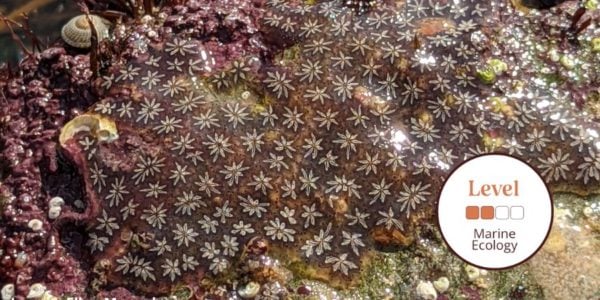
Mon 14, October 2024 10:00 - Tue 15, October 2024 17:00
If you would like to book accommodation, lunch and an evening meal at Millport Centre please email [email protected]. Please note the centre may not be able to guarantee accommodation and meals during this course.
No current dates for this course? Click here to view all the upcoming Natural History courses.
Progress Your Learning
This is a training course from the Field Studies Council, delivered by expert tutors with an approachable learning style. After attending this course, you may like to progress your learning with further relevant courses or branch out into other areas of natural history. The Field Studies Council offers both online and in person courses, so you can choose the learning style that suits you best.
The course gives you the opportunity to immerse yourself in a new subject and acquire novel skills. Our online portal gives you time to study at your own pace and fit the lessons around your own schedule.
If you have any questions about our courses please check our Frequently Asked Questions or email [email protected] if you have any questions.
Group Bookings Made Easy
If you have a group of 10 or more individuals wanting to complete one of our courses, our team are available to discuss your options – from discounts to private team courses. Find out more!
You can rest assured that the absolute best content from an expert in environmental education will be at your fingertips. In choosing a Field Studies Council course, you will be joining thousands of people who learn with us each year.

